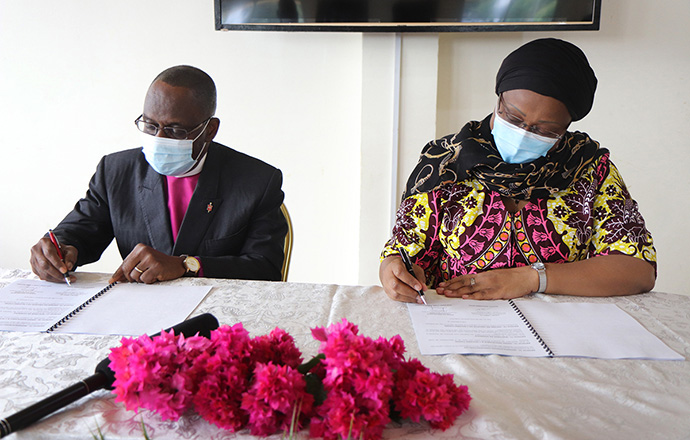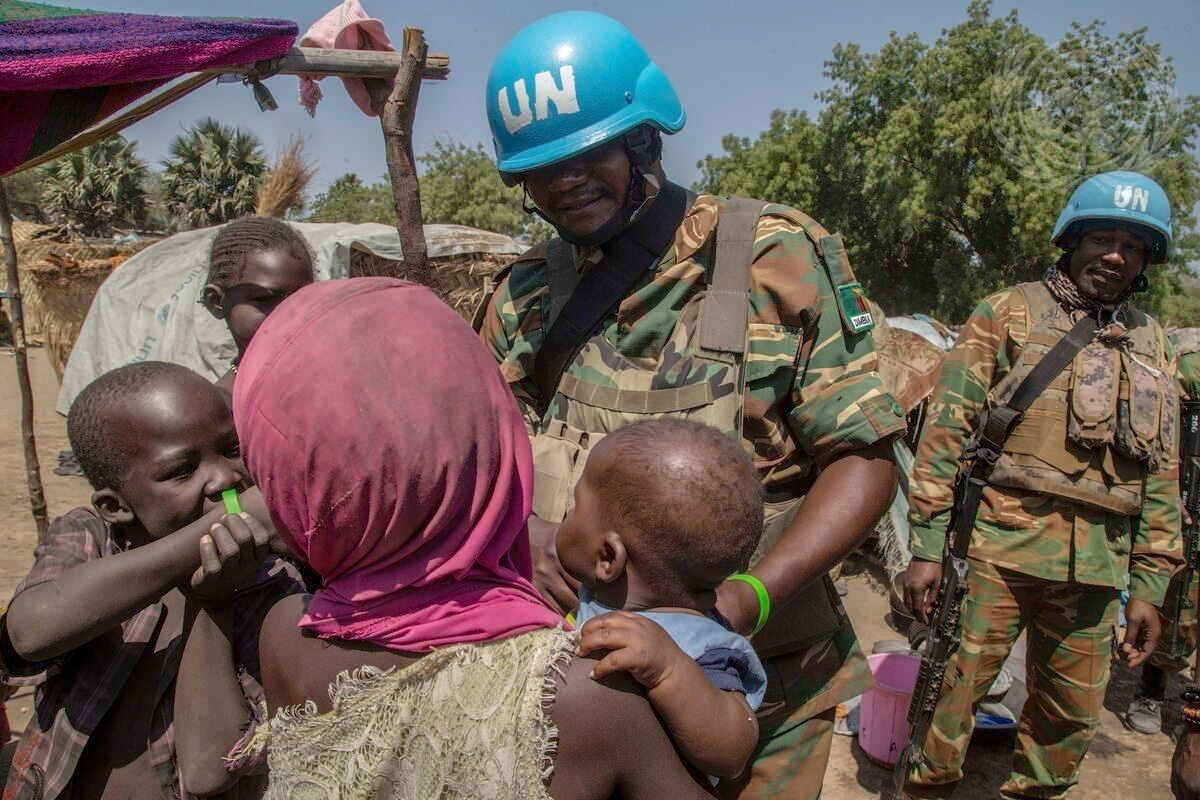As post-election violence continues to rage in the Central African Republic, United Methodists offer refuge and compassion.
On Dec. 27, incumbent President Faustin-Archange Touadéra, whose first five-year term ends in late March, was reelected. Tension erupted as armed militia groups in many areas prevented people from voting.
Fearing retribution and further violence, thousands of people sought refuge in neighboring countries. According to the United Nations, more than 200,000 people have fled their homes in the past two months. Rebel forces now control two-thirds of the country.
Rich in resources such as diamonds and uranium, the Central African Republic is one of the continent’s poorest and least stable countries. More than half a million people are internally displaced. The U.N. estimates that about half of the population depends on humanitarian aid. Food, health, shelter, water and sanitation are primary concerns.
How to help
Church members raised $350 and began distributing food to the displaced and Bibles to militia groups. The food included 660 pounds of rice, 880 pounds of sugar and 50 gallons of vegetable oil.
The church serves as a mediator or interpreter between factions. As a neutral party, the church “can only welcome and not reject,” the district superintendent said. The church “sees the rebels as lost souls or fishermen who need conversion, salvation and redemption,” he added.
Thousands of Central Africans have taken refuge in Cameroon, Chad, Congo-Brazzaville and the Democratic Republic of Congo. Most crossed the river border with the DRC.
More than 24,000 people fled to the Congolese provinces of Bas Uélé and Nord-Oubangui, crossing the Oubangui river. At least 15,000 Central Africans went to the village of Ndu, following attacks on the towns of Damara and Bangassou.
“Arrivals in the village of Ndu, which has just 3,500 inhabitants, have strained resources and host families,” said U.N. High Commissioner for Refugees spokesman Boris Cheshirkov.
In the DRC, displaced people await assistance. Jean Tshomba, coordinator of the church’s disaster management office in eastern Congo, said his team is working with the United Methodist Committee on Relief.

The Rev. M. Sachou is a missionary assigned to the Central African Republic by the United Methodist Board of Global Ministries. He returned to his home country of Côte d’Ivoire in mid-January for safety reasons.
After election day, Sachou recalled, United Methodist members in Bangassou, Bambari and Bria escaped into the bush or into the neighboring DRC. Houses were looted, and United Methodist worship services were stopped.
Curfews were imposed in Bangui, the capital. Though worship services are still held on Sunday mornings, cabs are banned in the city, so people who lack transportation cannot attend church.
In October, the Central African Republic and The United Methodist Church in Côte d’Ivoire started the framework for the church’s directorate of schools to help build schools in the republic. Now several cities involved in the school project are under siege by rebels, Sachou said.
Subscribe to our
e-newsletter
“We thank the church for welcoming us,” she said. She expressed gratitude for “people of goodwill, animated by the love of Christ.”
Tenguet Pierre, 39, lived on the outskirts of Bangui.
“The night of the attacks,” he recalled, “I was threatened to death with all my family by the rebels. They threatened to kill me because, for them, I am a traitor who betrays their position to the Central African Forces (army). Thank God, they didn't kill us.”
His family of five is now safely cared for by United Methodists.
“I am asking for prayers for our faithful who are in the bush, without food, without medicine, and whose homes have been looted,” Sachou said. “The big fear is that we don’t know what will happen between now and March 28, the day of the inauguration of the president-elect.”
The Rev. Wembi Maurice, secretary of the United Methodist mission in the Central African Republic, said the church continues to offer hope.
East Bangui’s district superintendent concurred. “The church remains the only refuge for the people at this time,” he said.
Londe and Broune are communicators in Africa.
News media contact: Julie Dwyer at (615) 742-5470 or [email protected]. To read more United Methodist news, subscribe to the free Daily or Weekly Digests.
Like what you're reading? Support the ministry of UM News! Your support ensures the latest denominational news, dynamic stories and informative articles will continue to connect our global community. Make a tax-deductible donation at ResourceUMC.org/GiveUMCom.




